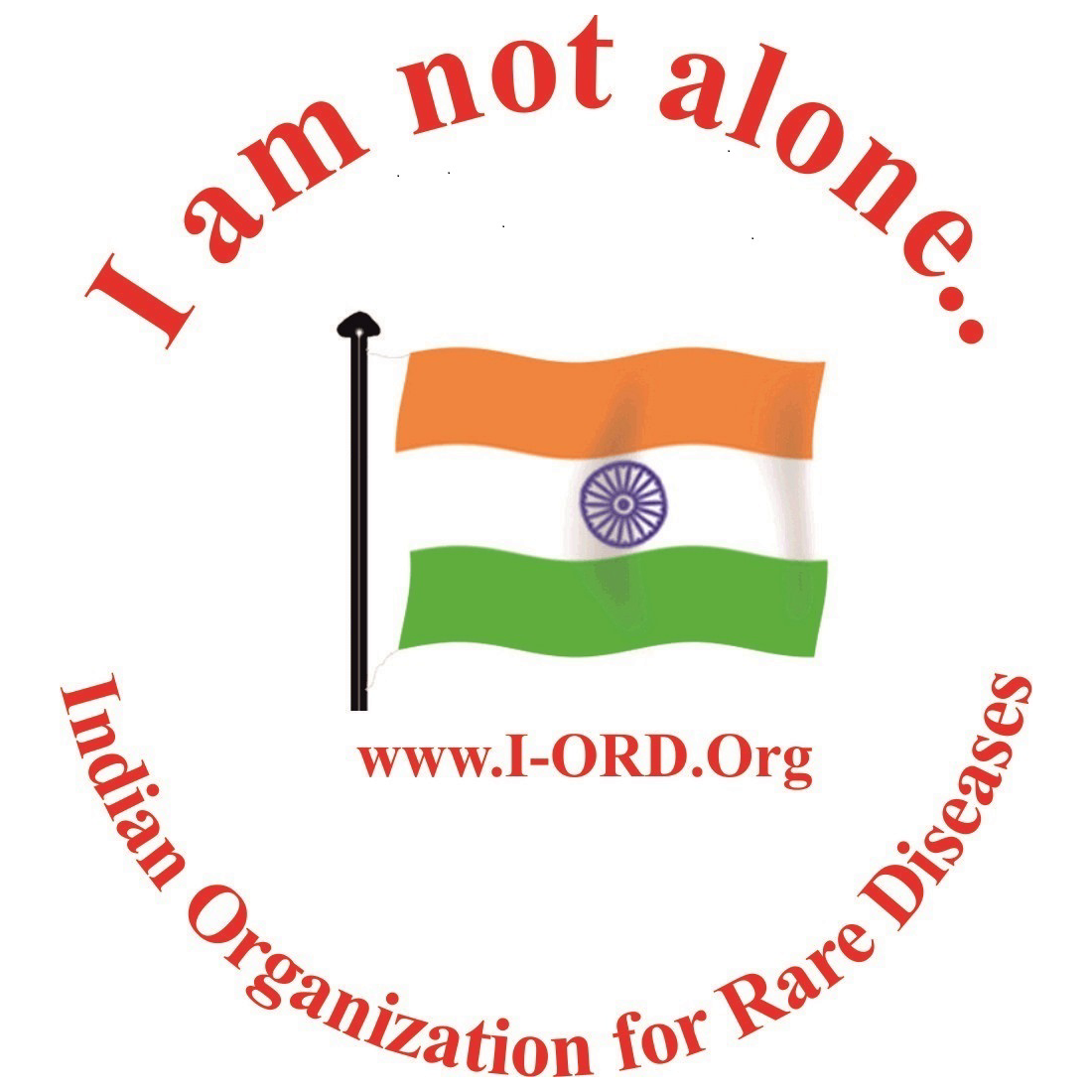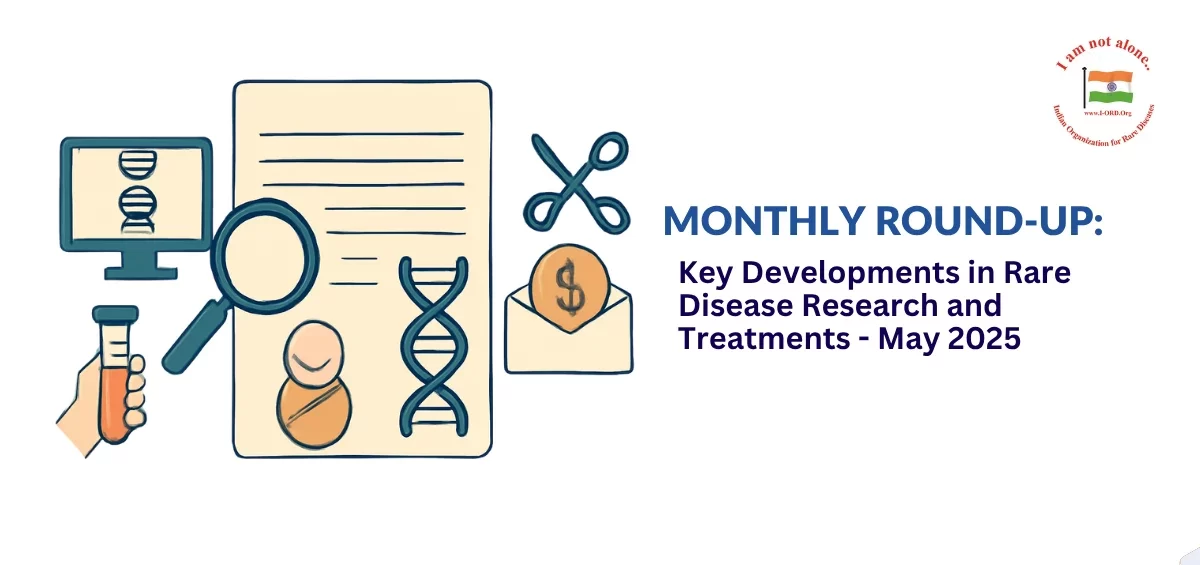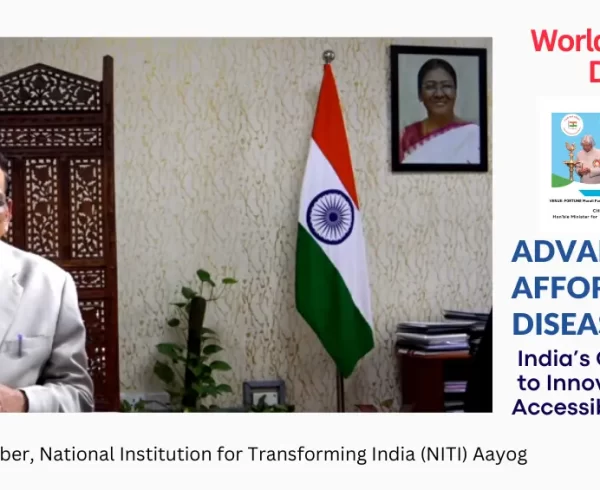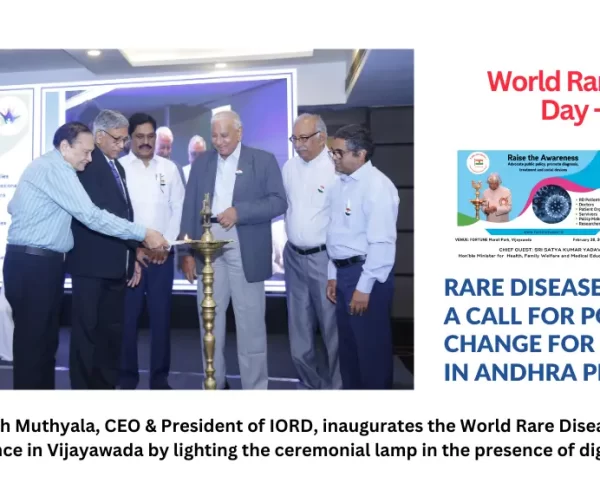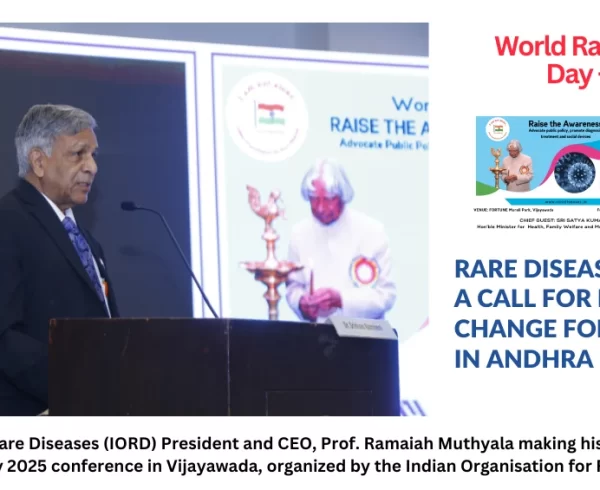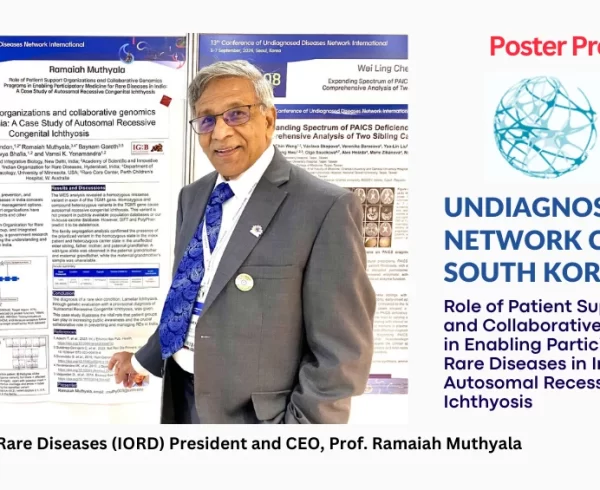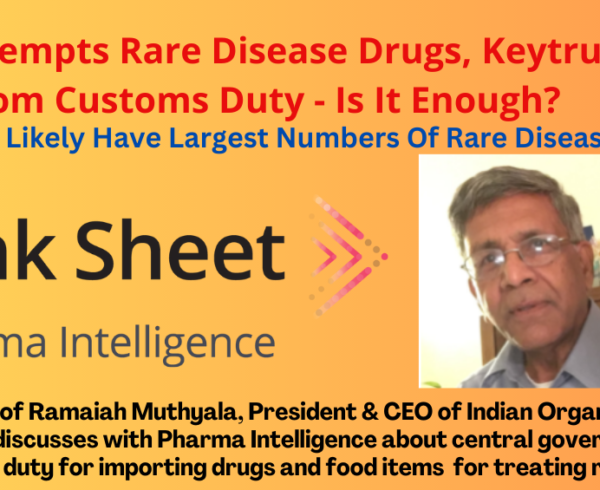In May 2025, rare disease research advanced significantly with breakthroughs in AI diagnostics, CRISPR therapies, and rapid genetic testing. IORD presents a curated round-up of the month’s most impactful developments. From innovative tools at AIIMS to global success stories in treatment and awareness, these developments mark a turning point in how rare genetic conditions are diagnosed, managed, and understood—offering new hope for patients and families worldwide.
Breakthrough Diagnostic Tool Developed for Rare Genetic Disorders
Researchers at AIIMS have pioneered a new diagnostic tool that can accurately detect a range of rare ciliary disorders, including conditions affecting the respiratory system, renal cystic disease, and even blindness. This advancement promises to revolutionize the diagnostic approach to rare genetic disorders, which often remain undiagnosed due to the complexity of symptoms. The development is part of AIIMS’s broader initiative to provide faster and more accurate genetic testing, with significant implications for both patient care and treatment options.
AI and Genomics to Transform Rare Disease Diagnosis
Artificial intelligence (AI) and genomics are set to play a critical role in reshaping the landscape of rare disease diagnostics and therapeutics. Dr. Rahila Sardar, Co-founder and CEO of Vgenomics India, has emphasized that AI-driven tools are helping to bridge the gap in diagnosing rare and genetically inherited diseases. This technology, combined with advances in genomic sequencing, is reducing diagnostic timelines and improving accuracy, thus offering hope for patients suffering from previously undetectable conditions.
CRISPR Gene Editing Offers Hope for Rare Genetic Disorders
A groundbreaking medical intervention has seen doctors successfully use CRISPR gene-editing technology to treat an infant diagnosed with a rare liver disorder, carbamoyl phosphate synthetase 1 (CPS1) deficiency. This first-of-its-kind personalized treatment not only offers relief for the baby but also opens up new possibilities for gene therapies tailored to specific genetic conditions. The development has sparked significant hope for the broader rare disease community, especially for conditions once thought incurable.
New Blood Test to Rapidly Diagnose Rare Genetic Diseases
In a major step forward, researchers in Australia have developed a blood test that can rapidly diagnose a variety of rare genetic diseases. The test, built upon advances in genomic sequencing, has shown to be effective in identifying half of all rare disease cases, reducing the need for costly and time-consuming genetic screenings. This diagnostic tool could significantly enhance the speed at which patients receive appropriate treatments, especially in rural and underserved areas.
How a Microsoft Developer’s Son’s Misdiagnosis Sparked AI DxGPT
Julián Isla, a Microsoft software developer, was inspired to create AI DxGPT after his son was misdiagnosed with Dravet syndrome, a rare genetic condition. To help diagnose rare diseases more effectively, Isla founded Foundation 29, which uses artificial intelligence to speed up diagnosis. The project aims to bridge the gap in diagnosing rare diseases by utilizing AI technology, ultimately making diagnosis more accessible and precise.
Crowdfunding Raises Funds for Baby with Rare Disease
In a heartwarming display of public support, a crowdfunding campaign has successfully raised ₹9 crore for the treatment of 15-month-old Asmika Das, who suffers from a rare and life-threatening disease. The campaign, which garnered support from celebrities and social media influencers, highlights the power of digital fundraising in providing access to life-saving treatments for rare conditions. Source: Times of India
Sperm Donor with Rare Gene Fathered 67 Children Across Europe
A shocking case has emerged of a sperm donor carrying a rare genetic mutation, which he unknowingly passed on to multiple children across Europe. This revelation has raised serious concerns about genetic screening practices in sperm banks and the potential for spreading rare genetic disorders. Medical experts are now calling for more rigorous genetic testing before donor sperm is used to prevent similar cases in the future. Source: Hindustan Times
Young Woman Underwent Menopause at 15 Due to Rare Disorder
A 30-year-old British woman has shared her story of undergoing menopause at just 15 years old, a result of a rare genetic disorder that led to her early fertility loss and bone fragility. The condition, though rare, underscores the importance of early diagnosis and intervention, which could have mitigated some of the severe effects on her health. Source: Times Now
Government Hospital Performs C-Section on Woman with Rare Disease
In a remarkable case of medical intervention, a government hospital in Mangaluru performed a C-section on a woman suffering from a rare genetic disease, which affects one in a lakh. The disease, which has limited treatment options, requires specialized injections derived from plasma, which are not easily accessible. This procedure has sparked discussions about the availability of treatments for such rare conditions. Source: Times of India
Silent Signs of Wilson’s Disease Identified in Young Patients
Wilson’s disease, a rare condition that causes copper to accumulate in vital organs like the liver and brain, often goes undiagnosed until it has already caused significant damage. New research and patient stories have shed light on the silent signs of this condition, which, if detected early, can be treated effectively. Source: The New Indian Express
New Subtype of Diabetes Found in India Could Change Treatment Approaches
Indian researchers have discovered a new subtype of diabetes that could revolutionize the treatment of certain rare forms of the disease. This landmark achievement could transform the way doctors diagnose and treat patients, offering hope for individuals suffering from these rare forms. Source: ThePrint
Indian Researchers Uncover Novel Subtype of Maturity-Onset Diabetes of the Young (MODY)
Researchers from India and the US have uncovered a novel subtype of Maturity-Onset Diabetes of the Young (MODY), a rare genetic form of diabetes. This discovery is crucial for better diagnosis and treatment of the condition, which has long been difficult to distinguish from other forms of diabetes. The New Indian Express
Inside the Secluded Village Battling a Rare Disease
Decades of research in a secluded village in Brazil have led to the discovery of a rare genetic disorder Spoan Syndrome, dramatically transforming how locals understand their health. The findings have brought attention to the challenges faced by rural populations in addressing rare diseases.
Andelyn Biosciences Delivers Gene Therapy for Ultra-Rare NEDAMSS Disease in Record Time
Andelyn Biosciences has successfully delivered gene therapy for the ultra-rare NEDAMSS disease, a neurodegenerative disorder affecting the central nervous system. The quick development and delivery of the therapy offer new hope for patients suffering from this regressive disorder, for which no known cures exist.
